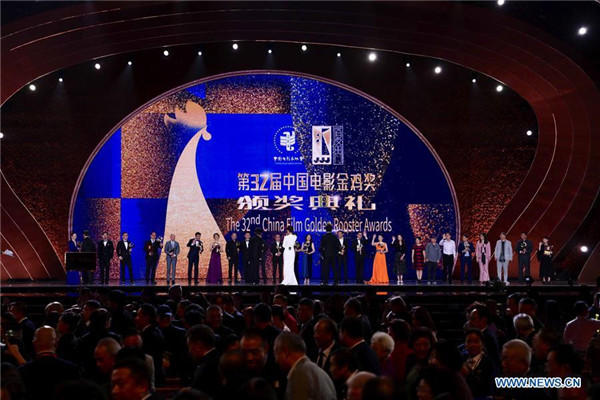Top 10 Chinese film festivals
- By Zhang Rui
 0 Comment(s)
0 Comment(s) Print
Print E-mail China.org.cn, December 12, 2019
E-mail China.org.cn, December 12, 2019

1. China Golden Rooster & Hundred Flowers Film Festival
The China Golden Rooster & Hundred Flowers Film Festival is the top film festival in the country. It faced numerous ups and downs through the decades and now has the ambition to become China's version of the Oscars.
The Golden Rooster Awards, launched in 1981, which was incidentally the year of the Rooster in the Chinese zodiac, is an awards ceremony that is sponsored by the China Federation of Literary and Art Circles and the China Film Association. The awards are also known as the "expert awards" because the results are decided on by filmmakers, critics, experts and film historians. The Golden Roosters have also long been associated with the Hundred Flowers Awards, which are voted by the public. The Hundred Flowers were founded by the China Film Association in 1962 and sponsored by the Popular Cinema magazine. Since 1962, the public have cast their votes for these awards, originally via mail, and now through text messages and the internet. In 1992, the Golden Rooster and Hundred Flowers Awards were combined into a single national festival and has been held on alternate years since 2005 in different cities.
However, the rules changed this year when the organizers announced that the Golden Rooster Awards would be held every year. Xiamen, a coastal city eager to make its name on China's film map, received the privilege of holding the Golden Rooster Awards ceremony for at least the next 10 years, providing a new home to the awards, while the Hundred Flowers Awards and festival will be held in Zhengzhou, Henan province, next year.
From this year on, the Golden Rooster Awards has adapted to the realities of China in the new era. It has received worldwide attention and unprecedented resources, including support from more than 600 filmmakers and celebrities including Jackie Chan, Zhang Yimou and pop sensation Jackson Yee. The awards ceremony also reached international standards with its use of5G telecasts and online live-casts to generate billions of clicks. It has given awards to winners which comprise a mix of high-quality commercial blockbusters and art-house films. The festival has also hosted many events including industry forums, programs to support young filmmakers, special screenings of international films, and previews for future Chinese film releases. It is clear that the film festival is determined to rejuvenate itself as a youthful and high-tech event that embraces the internet and technologies that are fast-shaping the film industry and Chinese audiences.





